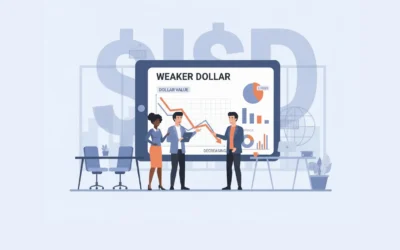Introduction
For physicians, attorneys, consultants, and firm owners earning six or seven figures, taxes are often your single largest annual expense. Yet many professionals leave money on the table: not due to negligence, but due to outdated advice, reactive accounting, or lack of strategic guidance.
As seasoned tax advisors working with high-income earners, we see this daily. True tax savings don’t come from software or last-minute deductions: they come from year-round strategy, entity structure optimization, and forward-thinking planning. This guide covers core tax-saving opportunities and how a modern Client Accounting & Advisory Services (CAAS) firm can support your financial health beyond just filing returns.
The Problem With Traditional, Compliance-Only Accounting
Most professionals engage an accountant once a year: usually in a rush, with little context or planning. That’s not tax strategy: it’s data entry.
Without monthly financial visibility, advisory support, or proactive reviews, high earners miss deductions, fail to optimize entity structure, and overpay year after year.
Why It Matters:
Tax code favors those who plan ahead: not those who rush to catch up.
A CAAS partner works with you throughout the year, not just at tax time. They provide real-time reporting, actionable insights, and tax guidance that evolves as your income, goals, and structure change.
Top Tax Deductions for High-Income Professionals
Many professionals are familiar with common deductions: office rent, supplies, travel: but few use them strategically. Here’s where optimization begins.
Home Office and Vehicle Use
If you’re a 1099 contractor or firm owner using part of your home exclusively for work, you may deduct a portion of mortgage interest, rent, utilities, and maintenance. Similarly, tracking business miles or actual vehicle expenses adds up fast.
Pro Tip:
Mobile apps like MileIQ or QuickBooks Self-Employed help automate mileage logs and track deductions in real-time.
Professional Development and Tools
Subscriptions to journals, online learning platforms, CLE or CME events, and even business coaching may be deductible. Just ensure the expense directly supports your income-producing activities.
Advisory and Legal Fees
Fees paid to CPAs, legal counsel, and consultants who help your business or career are deductible. These often go underutilized but can create significant value.
Business Structure: S-Corp vs. LLC vs. C-Corp
Your business entity influences how much you owe in taxes. For example, many professionals earning over $200K per year benefit from electing S-Corp status.
Why? Because you can split income between salary (subject to payroll tax) and distributions (which aren’t). But you need proper bookkeeping and reasonable compensation documentation to pass IRS scrutiny.
Analogy:
Think of your entity as the tax “vehicle” you drive. Picking the wrong one could be like using a sports car to haul lumber: possible, but inefficient and costly.
And while LLCs and S-Corps often suit solo professionals or firms with steady income, there’s a growing trend among strategic founders and high-growth operators choosing C corporations: especially when planning for investment, equity-based exits, or leveraging QSBS benefits. As we explored in this article, C-corps offer opportunities for long-term capital gain exclusion, structured compensation planning, and broader appeal to investors.
A CAAS advisor can help you model your tax burden under each structure and determine the best fit as you grow: especially when navigating choices that have both short-term savings and long-term wealth implications.
Advanced Tax Planning Strategies That Actually Work
Maximize Retirement Contributions
For high earners, traditional 401(k)s barely move the needle. Consider a Solo 401(k), SEP IRA, or even a defined benefit plan to shield six figures annually from taxes while building wealth.
Use Health Savings Accounts (HSAs)
If you qualify for an HSA, it’s the only triple tax-advantaged account: you deduct contributions, enjoy tax-free growth, and pay no tax on qualified medical withdrawals.
Time Your Income and Expenses
Accelerate deductions into high-income years and defer income into lower-income years. Professionals who control their billing cycles or compensation have real power here.
Why It Matters:
Timing matters more than most realize: especially for pass-through income or bonus-heavy compensation structures.
Employ Your Spouse or Children
If your spouse or children perform legitimate work in your business, paying them a reasonable wage allows you to shift income to potentially lower tax brackets. Their wages are deductible to the business and, in many cases, taxed at a lower individual rate.
Leverage Augusta Rule
The Augusta Rule (Section 280A(g)) allows homeowners to rent out their home to their business for up to 14 days per year without reporting the income. If structured properly, this becomes a tax-free payment from your business to you personally.
Cost Segregation for Property Owners
If you own commercial real estate, a cost segregation study allows you to reclassify portions of the property into shorter depreciation schedules. This means larger deductions now, rather than slowly over decades.
QSBS: A Hidden Gem for Firm Builders and Startup Investors
Qualified Small Business Stock (QSBS) under IRC Section 1202 allows eligible shareholders in C corporations to exclude up to $10 million (or 10x basis) in capital gains from federal taxes if the stock is held for at least five years.
QSBS and the New Federal Law: What’s Changed?
The once-proposed QSBS 2.0 reforms have officially been enacted through the 2025 One Big Beautiful Bill (OBBB). These changes enhance the Qualified Small Business Stock (QSBS) exemption and are now law.
Key updates include:
– An increased capital gains exclusion cap
– A shorter holding period for certain qualifying industries
– Broadened eligibility, now covering more founders, professionals, and early-stage team members
This is especially relevant for attorneys, consultants, and high-income professionals who invest in—or help build—fast-growing C corporations.
🔗 Tax Reduction Tips for Physicians, Lawyers, and Other High-Income Earners
The Role of Bookkeeping and Financial Visibility
You can’t optimize what you can’t see. Clean, consistent financials are the foundation of every tax strategy worth implementing.
How CAAS Solves This:
With modern advisory services, you get real-time bookkeeping, monthly financials, cash flow projections, and built-in tax planning: all in one. Instead of scrambling each March, you’ll always know where you stand.
When to Bring in a Tax Advisor or CAAS Firm
Don’t wait until tax season. Bring in a CAAS team when:
– You cross $200K+ in 1099 income
– You’re launching a new practice or firm
– You’re exploring S-Corp election or adding employees
– You’re tired of your CPA only calling you in April
Regulatory Compliance, Risk, and Audit Readiness
A key benefit of working with a CAAS firm is having built-in controls that protect your business from regulatory missteps and reduce audit exposure. Whether you’re filing across multiple states or maintaining compliance with the Internal Revenue Service, a proactive advisory approach ensures nothing slips through the cracks.
We emphasize internal controls, accurate financial reporting, and maintaining proper documentation: especially for high-income taxpayers where scrutiny is higher. A CAAS solution doesn’t just help avoid audits; it helps pass them cleanly if they occur.
Financial Statement Clarity and Workflow Efficiency
Real-time financial visibility is about more than dashboards. It’s about building a system where your profit margins, cash flow, payroll, and expense workflows all connect. CAAS platforms like Sage Intacct and QuickBooks Online provide performance indicators that help you track growth and ensure strategic planning stays on target.
Our advisory clients routinely benefit from: – Cash flow forecasting – Streamlined accounts payable and receivable – Optimized balance sheet management – Role-based internal control workflows
Outsourcing and Workflow Automation
Why burden internal staff with compliance, reporting, and reconciliations? Outsourced accounting and virtual CFO services allow you to scale operations and improve efficiency. Whether you’re preparing for an IPO or simply streamlining operations, automation reduces human error and improves strategic focus.
Pro Tip:
Combining outsourcing with automation can increase your firm’s operational efficiency while preserving valuable in-house resources.
Risk Management and Legal Protection
High-income professionals face higher legal exposure and regulatory obligations. Incorporation and legal structure choices (e.g., LLC, C corporation, S corporation) impact liability protection and control. Ensuring proper registration, entity-level reporting, and document retention reduces business risk.
Your CAAS partner acts as a fractional CFO, strategist, and compliance advisor: integrating financial, legal, and tax planning under one coordinated approach.
Tracking What Matters: KPIs and Financial Reporting
High-income professionals need more than basic P&L statements. Understanding your net income, profit margin, and cash flow trends across quarters helps align tax strategies with business cycles.
Client Accounting & Advisory Services (CAAS) helps translate data into direction using robust financial statement preparation, budgeting, and real-time performance indicators. Our clients gain weekly or monthly visibility into KPIs like gross revenue, payroll expense ratios, overhead benchmarks, and more—empowering smarter decisions across the board.
Pro Tip:
Don’t treat reporting as retrospective. CAAS transforms it into a forward-looking tool to reduce surprises and optimize quarterly tax planning.
Equity Strategy and Shareholder Planning
For firm owners, startup founders, or fractional execs taking equity, stock structure matters. Qualified Small Business Stock (QSBS) rules depend on how shares are issued, held, and classified—whether common stock, preferred stock, or via options.
Proper planning also involves aligning ownership with long-term shareholder value while managing tax exposure under corporate law.
Why It Matters:
Stock-based compensation, employee stock ownership plans, and early equity awards can carry powerful tax advantages—but only if structured early with compliance in mind.
Cybersecurity and Cloud-Based Trust
Today’s advisory environments rely heavily on data security, automation, and protected cloud computing systems. It’s not just about clean books—it’s about trust. The more your firm scales, the more critical this infrastructure becomes.
Understanding Tax Policy Shifts
Tax legislation isn’t static. Changes like the Tax Cuts and Jobs Act or potential QSBS reforms can reshape how professionals plan around deductions, equity, and distributions. Staying ahead of these developments isn’t just smart—it’s essential.
A CAAS team continuously monitors tax policy, ensuring your strategy adjusts with evolving rules from the Internal Revenue Service and other regulatory bodies.
Don’t Leave Wealth on the Table
Strategic planning is about more than compliance—it’s about converting tax liabilities into fuel for wealth management. Whether you’re structuring an investment, exercising equity, or reviewing a tax credit, knowing your fair market value impact is key to long-term gains.
Choosing the right incorporation state and appointing a reliable registered agent creates the legal backbone for your tax strategy. For equity clients, platforms like Carta can help manage cap tables and QSBS documentation efficiently.
Strong accounting practice management ensures consistency, delegation, and clean audit trails—critical for sustainable financial operations.
Additional Resources to Deepen Your Strategy
Before wrapping up, here are some complementary reads from our team to help reinforce what you’ve learned and dive deeper into specific strategies:
Final Thoughts
If you’ve been navigating tax strategy with only surface-level advice, this is your moment to dig deeper. Whether it’s selecting the right legal entity, avoiding double taxation, or optimizing deductions with tools like cost segregation or the Augusta Rule, strategic action pays off.
High-income professionals operate at a financial altitude where tax avoidance (the legal kind), equity planning, QSBS eligibility, and smart structuring around payroll, dividends, and debt become essential. Terms like capital gains tax, fair market value, and the internal revenue code aren’t just buzzwords: they’re levers.
With the right advisory partner and tools like cloud computing, CAS accounting systems, and virtual CFO services, you can shift from reactive reporting to proactive planning. That’s the core of financial performance.
Remember, effective planning isn’t only about today’s income tax or next April’s return. It’s about aligning your entity, accounting software, internal controls, and forecasting with long-term wealth creation.
High-income professionals need more than a tax preparer. They need a strategic partner who sees the full picture, understands the nuances of professional income, and delivers actionable advice all year long.
CAAS isn’t just bookkeeping: it’s the financial backbone of your business. By investing in proactive planning and expert advisory, you don’t just save on taxes. You gain clarity, control, and confidence.
Ready to stop overpaying the IRS? Let’s talk.


